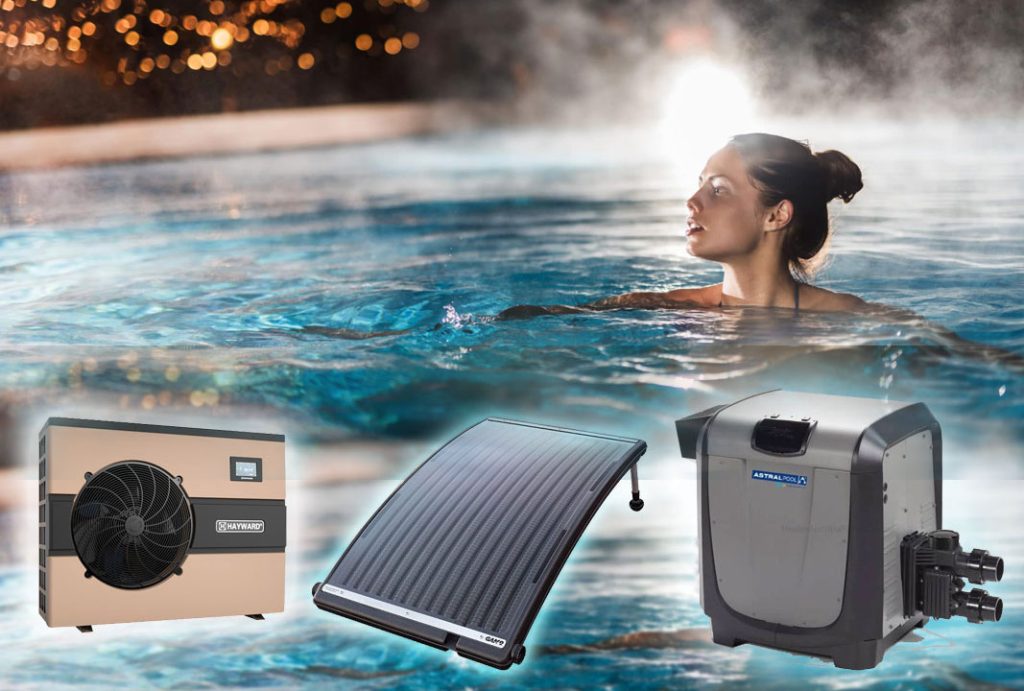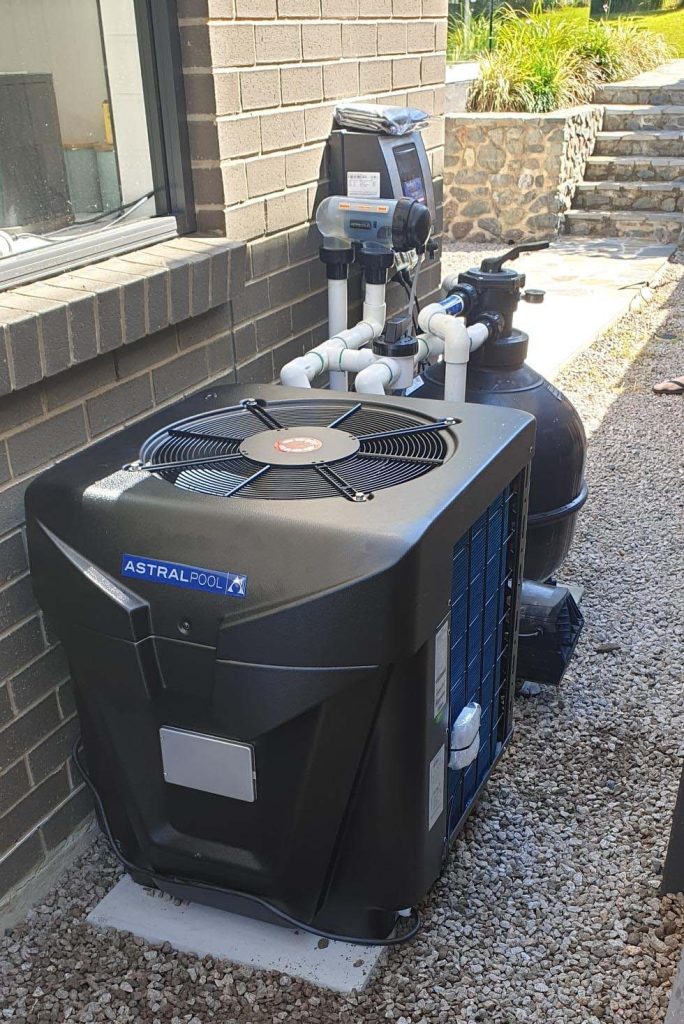Pool Heater Guide
Pool Heater Guide
Pool Heating Options
Using your home pool need not be a recreational activity solely reserved for spring and summer. You can keep your pool comfortable and inviting during all four seasons with pool heating. Pool heating not only keeps your pool at perfect temperatures, it extends your swimming season, so you and your family can stay fit and healthy all year round.
There are three main options for pool heating but whether you choose an electric heat pump, a gas heating system or solar pool heating, the end result will be a pool that is always sitting at the right temperature for swimming – no matter what time of the year it is. And, in addition to extending your swimming season, a pool heater can also add value to your home.

Types of Pool Heaters
There are three main options for a pool heating system including:
Electric or inverter heat pumps
To increase pool water temperature, heat pumps intake air and transfers the heat into circulating pool water. This provides a more consistent temperature all year round, no matter cold it gets, and also ensures a warmer, more consistent temperature than solar. Also, once an inverter reaches the set temperature, they can operate at slower speeds, making them very energy efficient – and saving you energy and money. In this mode, inverters can generate 1000%-1600% extra heat. The only downside is that inverters may take a little longer (than gas) to heat up, so start heating your pool well ahead of your winter pool party.
Gas heating systems
Gas heating systems utilise a series of copper pipes. When pool water is pumped through these pipes, the gas ignites, heats the water, which is recirculated back into the pool. This is runs in a continual cycle until reaching the set pool temperature.
Gas heaters are ideal for any climate, especially cold and windy environments, and will heat your pool effectively every time without fail. Gas heaters do tend to have more expensive running costs. Gas prices fluctuate regularly also, which means that gas heaters can be more costly to operate than other heating options at these times.
Solar pool heating
Solar pool heating is the most inexpensive, energy-efficient way to heat your pool. Solar heating utilises a pump that circulates the water from your pool through heated solar roof panels, and recirculates the heated water back into your pool until the set temperature is reached. So, if you’re energy or environmentally conscious, solar is the obvious choice for heating home pools since you’ll benefit from the most natural and renewable energy source on the planet – sunlight.
Solar pool heating systems can work for up to a decade or longer without being replaced. However, solar heating is reliant on the climate. Since solar requires sunlight, its effectiveness can vary like the weather. They may also take a long time to heat up, especially on overcast or windy days. So if you live in a colder, cloudy area, you may also need an electric heat pump as backup to reach your set temperature.
Pool insulation options to help maintain water temperature
You can offset energy costs further by insulating your pool with a pool cover or blanket. When used along with a pool heater, you’ll have more heat retention and use less energy. A pool cover can insulate your pool water and prevent a significant amount of heat loss. Not only that but some solar-style pool covers can heat up your pool at the same time.
What pool heating option is more suitable for your situation?
When it comes to heating your pool, the size of your pool can impact on your decision making. While one heating solution might work well for smaller pools, it might not be effective for a larger pool. Another key factor to consider when making your decision is the cost of installation. Consult Atlantis Pool Services for expert advice on pool heating options – to suit your budget, type of pool and lifestyle.

Astral Heat Pump installed by Atlantis Pool Shop
